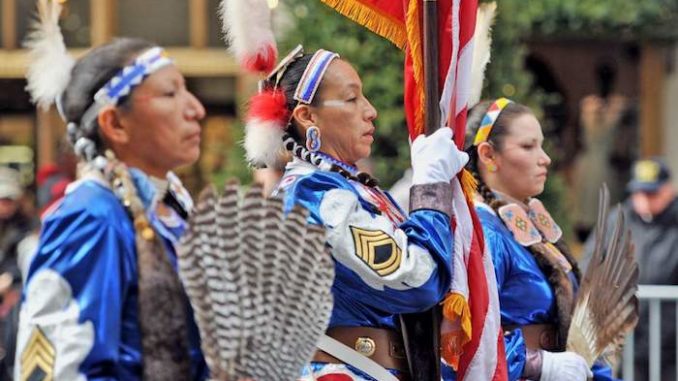
94 percent of Native American woman have been raped or sexually abused at least once in their lifetime, according to a damning report.
The report, from the Urban Indian Health Institute and Centers for Disease Control and Prevention, is the first to examine the experience of native women living in an urban environment.

BYPASS THE CENSORS
Sign up to get unfiltered news delivered straight to your inbox.
You can unsubscribe any time. By subscribing you agree to our Terms of Use
Latest Video
Independent.co.uk reports: Out of the 148 women surveyed, 94 per cent said they had been raped or forced to have sex and 69 per cent claimed they experienced street harassment.
What’s more, 86 per cent reported they suffered from historical trauma – a term which refers to the idea trauma from colonisation and historical oppression gets passed down from one generation to another.
The research – which documents the experiences of sexual violence among Seattle-based American Indian and Alaska Native women – found more than half the women (53 per cent) were homeless at the time they were surveyed.
Lacking permanent housing increases the chance people will experience sexual assault.
Urban Indian Health Institute Director Abigail Echo-Hawk discovered the results of the survey in 2016 in the bottom drawer of a file cabinet in the corner of her office. However the health institute has only just released the survey results to the public.
Indigenous women’s rights advocate Susan Balbas of the Na’ah Illahee Fund said native groups are inclined towards staying quiet surrounding violence against women in the community due to concerns about how outsiders will perceive indigenous groups.
Nevertheless, she said she thinks it is time the community publicly addresses the high rate of abuse and homelessness.
“It’s acknowledging the violence in the community but really developing a critical analysis about what the causes are,” Ms Balbas told the Seattle Times.
“It’s the legacies, the ongoing legacies of colonisation and policies that have affected tribal communities, intentional policies that have hurt and damaged native communities.”
“This will be the first of many discussions that will take place around sexual violence in our community,” Seattle City Councilmember Debora Juarez said in a statement.
“We have always known that the rates of sexual violence against native women was high, but it’s going to take others to acknowledge it as well and to do something about it, and that needs to happen now.”
Esther Lucero, CEO of Seattle Indian Health Board – the non-profit organisation which oversees the Urban Indian Health Institute – said the reasons for such high rates of abuse and lack of accountability are multifaceted and complex. She said they partly stem from the historical trauma of colonialism.
This is defined in the report as “cumulative emotional and psychological injury over the lifespan and across generations, emanating from massive group trauma and a history of genocide”.
Historical trauma can display itself as cycles of violence which sees the perpetrators often being survivors of abuse themselves.
She argued boarding schools which strived to assimilate native communities by depriving them of their traditions “is where our family systems became dismantled.”
Ms Lucero said colonisation also spurred the dehumanisation of indigenous women – forging a “culture where women are less valued and thought of as property”.
Back in May 2016, a study by the Department of Justice revealed out of the 2,000-plus Native American and Alaskan Native women surveyed (who lived both on and outside of reservations), 56 per cent had experienced sexual assault and rape.
The report attributed the high rate of sexual violence to a “flawed tribal court structure, little local law enforcement, and a lack of funding.”
Native Americans often face low education levels, poor health care, substandard housing, and high rates of poverty.
Native American history has included mass killings and attempts to deprive tribes of their land, language, rituals and overall culture. In more recent years, disputes have played out in the form of cultural and legal fights over property and casinos.


